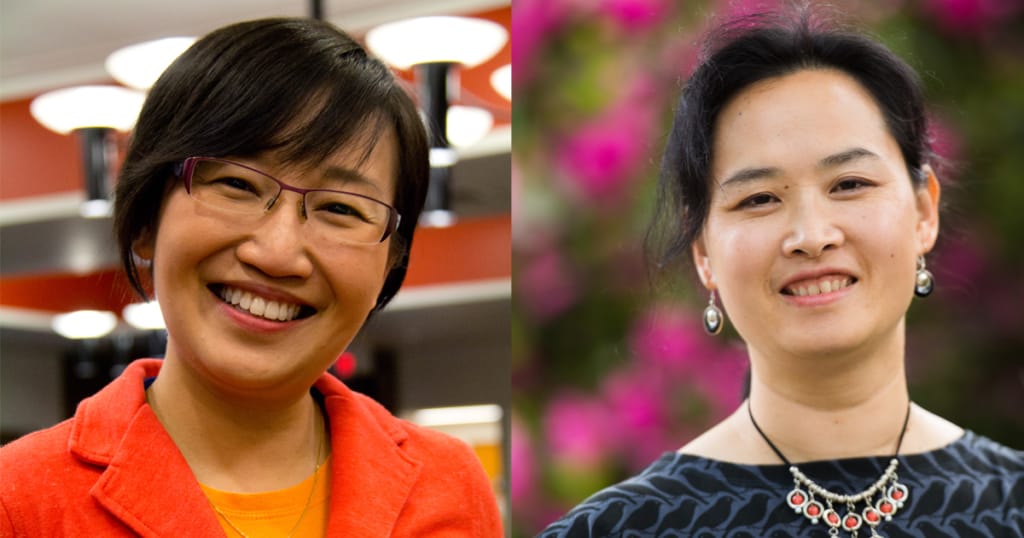
Colleagues for more than nine years, Emily Ho and Siew Sun Wong have long supported each other’s success.
Emily, who has been with the College of Public Health and Human Sciences for 17 years, six of them as inaugural director of the Moore Family Center for Whole Grain Foods, Nutrition and Preventive Health (MFC), recently was named endowed director of the Linus Pauling Institute (LPI). Siew Sun assumed her role in the MFC.
“I am extremely excited to pass the baton to Siew Sun,” Emily says. “Her expertise in technology and nutrition education are a perfect fit for the vision of Bob and Charlee Moore. I am excited to see the innovations and new directions she can bring to the center.”
Siew Sun says she’s grateful for the team Emily has built in the MFC, as well as her mentorship. Her goal for the center is to enable practical, innovative, collaborative work that supports healthy living and to apply digital technology to enhance the center’s research, education and outreach programs.
Both leaders see collaboration, diversity and a holistic view of health across the lifespan as keys to their success.
“Our team camaraderie grows steadily through a nurturing work culture that values mutual respect, reliability, accountability, trust and flexibility to be productive and creative,” Siew Sun says. “I live by the values of diversity, determination, discipline and distinction. I believe my passion and curiosity to improve human health through nutrition education and behavior change has opened doors for me to work with people from different backgrounds.”
Emily, who maintains her role as faculty in the nutrition program and in the Moore Family Center, says these experience influence her approach as LPI’s director.
“The MFC directorship has prepared me in a lot of different ways, but one of the biggest things I learned about is the power of collaboration and getting different walks of life together committed to making a difference in moving the dial toward health,” she says.
“The college as a whole is a perfect example of spanning the entire spectrum of human health research and how they fit together to solve big problems. Being able to interact and see the different approaches to public health, and also experience the power of community-informed research and practice, has really helped re-shape my approaches to engaged health research. The College of Public Health and Human Sciences will always have my heart and be my home.”